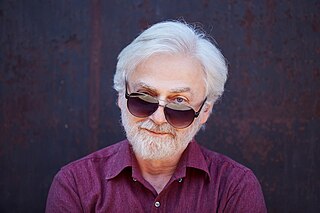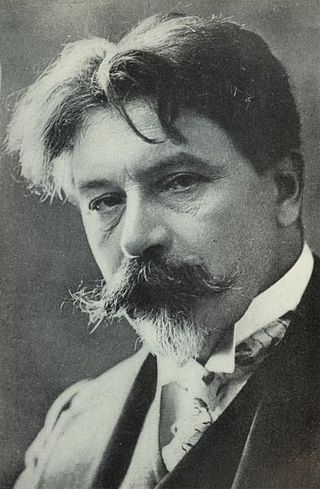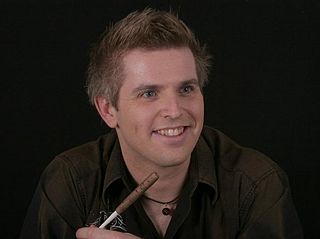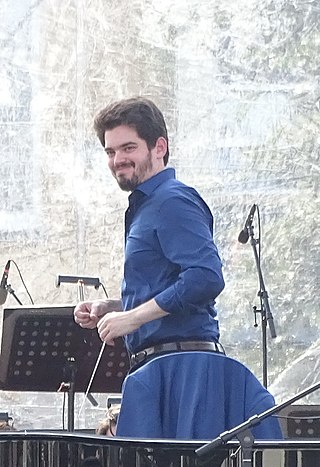The Berlin Philharmonic is a German orchestra based in Berlin. It is one of the most popular, acclaimed and well-respected orchestras in the world.

Daniel Barenboim is an Argentine-Spanish-Israeli-Palestinian classical pianist and conductor based in Berlin. From 1992 until January 2023, Barenboim was the general music director of the Berlin State Opera and "Staatskapellmeister" of its orchestra, the Staatskapelle Berlin.

Claudio Abbado was an Italian conductor who was one of the leading conductors of his generation. He served as music director of the La Scala opera house in Milan, principal conductor of the Berlin Philharmonic, principal conductor of the London Symphony Orchestra, principal guest conductor of the Chicago Symphony Orchestra, music director of the Vienna State Opera, founder and director of the Lucerne Festival Orchestra, founder and director of the Mahler Chamber Orchestra, founding artistic director of the Orchestra Mozart and music director of the European Union Youth Orchestra.

Krystian Zimerman is a Polish concert pianist, conductor and pedagogue who has been described as one of the greatest pianists of his generation. In 1975, he won the IX International Chopin Piano Competition.

Sarah Chang is a Korean American classical violinist. Recognized as a child prodigy, she first played as a soloist with the New York Philharmonic and the Philadelphia Orchestra in 1989. She enrolled at Juilliard School to study music, graduated in 1999, and continued university studies. Especially during the 1990s and early to mid-2000s, Chang had major roles as a soloist with many of the world's major orchestras.

Arthur Nikisch was a Hungarian conductor who performed internationally, holding posts in Boston, London, Leipzig and—most importantly—Berlin. He was considered an outstanding interpreter of the music of Bruckner, Tchaikovsky, Beethoven and Liszt. Johannes Brahms praised Nikisch's performance of his Fourth Symphony as "quite exemplary, it's impossible to hear it any better."

Christian Thielemann is a German conductor. He is currently chief conductor of the Staatskapelle Dresden, and the designated Generalmusikdirektor of the Berlin State Opera.
The Hans von Bülow Medal is awarded by the Berlin Philharmonic Orchestra to outstanding musicians close to the orchestra. The medal is named after its first Chief Conductor, Hans von Bülow.

Kirill Garrievich Petrenko is a Russian-Austrian conductor. He is chief conductor of the Berlin Philharmonic.

Daniel Stabrawa is a Polish violinist and conductor.

Dan Ettinger is an Israeli conductor, opera singer and pianist.

Lahav Shani is an Israeli conductor, pianist and double bassist.

Konstantin Sellheim is a German classical violist, who has appeared internationally with a focus on chamber music. He is a violist of the Münchner Philharmoniker, and lecturer of viola at the Universität der Künste Berlin.

Wolfgang Boettcher was a German classical cellist and academic teacher. He was principal cellist of the Berlin Philharmonic, and a founding member of The 12 Cellists of the Berlin Philharmonic. From 1976, he was professor at the Hochschule für Musik Berlin. From 1986 to 1992 he was artistic director of the Sommerliche Musiktage Hitzacker chamber music festival.
Mathieu Dufour is a French classical flutist. He is a former principal flutist of the Berlin Philharmonic.
Peter Muck was a German violinist and violist.
Jan Diesselhorst was a German cellist.
Neithard Resa is a German violist and former member of the Berlin Philharmonic.

Siegfried Paul Otto Borries was a German violinist and violin educator.
Johannes Hans Bastiaan was a German violinist. He was a member of the Berlin Philharmonic for over 40 years. From 1945 to 1970, he served as primarius of the Bastiaan Quartet.













